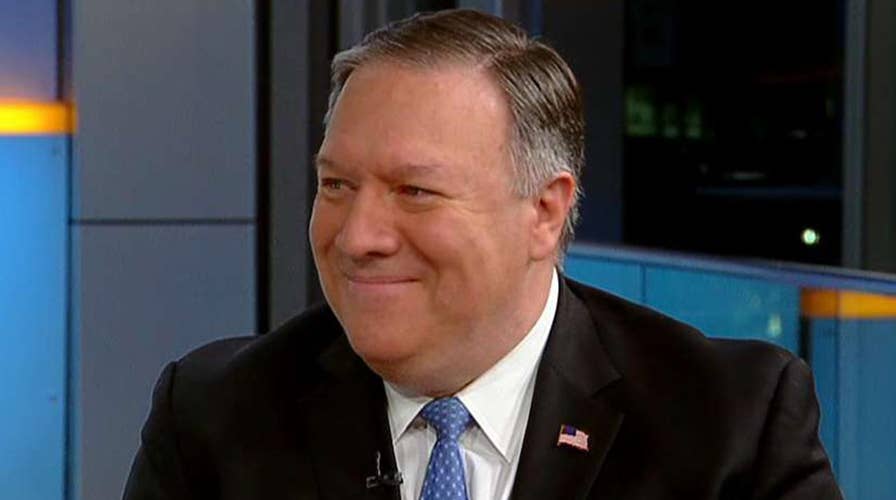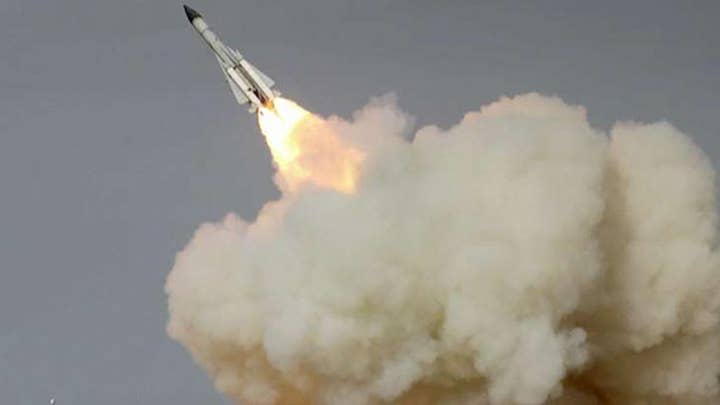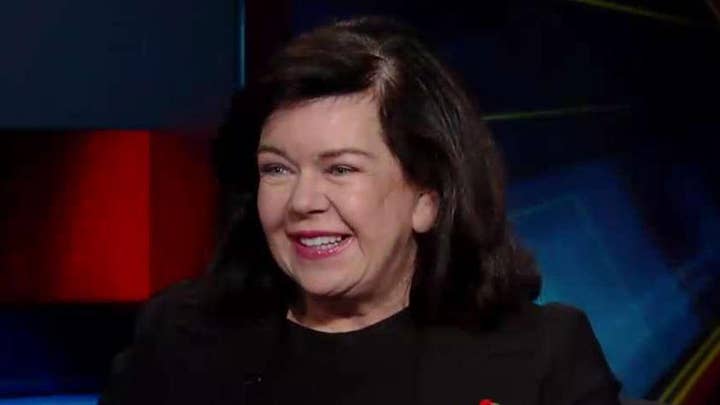Mike Pompeo: Trump is committed to protecting America
Secretary of State Mike Pompeo weighs in on the French terror attack, border security, Jamal Khashoggi murder, China, his speech in Brussels and Russia nuclear jets in Venezuela on 'Fox & Friends.'
UNITED NATIONS -- Secretary of State Mike Pompeo said Wednesday he wants to build a “coalition of responsible nations” to push back against malign Iranian actions -- as European countries took to the U.N. Security Council to ramp up pressure on the regime.
“The United States will continue to unite sovereign nations in their responsibility to work for the peace and security of their own people and a stable international order,” he said at a meeting of the council on non-proliferation. “The United States will continue to be relentless in building a coalition of responsible nations who are serious about confronting the Iranian regime’s reckless ballistic missile activity.”
He warned nations of allowing the Islamic regime to flout the Iran nuclear deal, and called on the Security Council to “get serious” about pushing back on the regime.
“Iran has exploited the goodwill of nations and defied multiple Security Council Resolutions in its quest for a robust ballistic missile force,” he told the Council. “The United States will never stand for this.”
The meeting comes after Tehran tested a medium-range ballistic missile earlier this month — a move that Pompeo has said is in violation of Security Council Resolution 2231, the document that enshrined the 2015 Iran deal, called the Joint Comprehensive Plan of Action (JCPoA), negotiated under the Obama administration.
Pompeo has cited the activities of Iran as proof that the deal is not working.
EUROPEANS FUME OVER TEHRAN MISSILE TEST
“If you’re looking for a failed agreement, I’ve got a good one for you,” he told reporters outside the council chamber on Wednesday.
However the resolution only “calls upon” Iran to cease testing of ballistic missiles, which has led European diplomats to say that the move is “inconsistent” with the resolution, but not in violation — a crucial diplomatic distinction.
Consequently, the European line toed by many on the Council was that the JCPoA was working and needed to be upheld, and that they regretted the U.S. decision to pull out of the Obama-era accord in May and reimpose sanctions.
French Ambassador Francois Delattre said there was no “credible alternative” to the JCPoA and noted that the U.N.’s nuclear watchdog had repeatedly found Iran to be in compliance.
“Iran continues honoring its nuclear obligations, confirmed for 13th time in a row by the International Atomic Energy Agency,” he said.
Russian Ambassador Vasily Nebenzya, meanwhile, accused the U.S. of stoking anti-Iranian hysteria and called for the end to unilateral actions.
“The only way to preserve the agreement is diligent implementation by remaining members of commitments they voluntarily undertook,” he said.
But Pompeo dismissed the idea that the deal was bringing Iran into line and said the test was a sign that Iran is “defiant of the world’s insistence as ever.”
“Iran’s pace of missile activity, including missile launches and tests, did not diminish since the JCPOA. In fact, Iran’s missile testing and missile proliferation is growing,” he said.
Pompeo’s criticism of Iran’s behavior did see some support from Council members, where there was criticism of Iran’s missile test and other “destabilizing activities” in the region, such as in Yemen, Iraq and Syria. U.K. Ambassador Karen Pierce defended the JCPoA, but then warned Iran that the accord is “not a license [for Iran] to engage in destabilizing behavior elsewhere -- whether or not that has a nuclear link."
She accused Iran of “ignoring the will of this Council” and said that while Iran has national security interests, “the way Iran goes about pursuing those interests is leading to increased destabilization and is simply not legitimate in the modern world."
Delattre also expressed concern about Iran’s actions and said it should “immediately cease all these destabilizing activities.”
“It is up to each one of us to convey this message and France will continue its demanding dialogue with Iran on this issue,” he said.
Pompeo’s case was hardened by a report by the secretary general, on which the council was briefed Wednesday, that found that anti-tank missile launchers found in Yemen were manufactured by Iran in 2016 and 2017. The E.U. group of eight members on the Council, in a statement ahead of the meeting, called the JCPoA “an example of effective multilateralism” but said it was “very concerned” about the Secretary-General’s findings.
After the meeting, in response to a question from Fox News, Pompeo said that the U.S. clearly has a different view from European countries on the Iran deal -- “They view it as a linchpin, I view it as a disaster” -- but said he wanted to “build out a coalition” to push back against Iranian activities.
“Make no mistake, American leadership is determined to work not only with Europeans -- we think of Germany, France and Britain -- but many other European countries who share our concerns as well. Countries throughout the Middle East, Asia, Africa all joining with the United States under our leadership to first acknowledge the risk that Iran presents and then set up a response that will ultimately deter them,” he said.
EUROPE OPEN DOORS TO SANCTIONS ON IRAN AFTER TERROR PLOTS IN DENMARK, PARIS
Europeans are facing increasing pressure to get tough on Iran — with a number of countries foiling terror attacks authorities say have been plotted from Tehran.
The Wall Street Journal reported in November that a call for sanctions by Danish diplomats won broad support at a meeting of E.U. ambassadors, after Denmark’s intelligence agency foiled an Iranian plot to kill an opposition activist and arrested a Norwegian of Iranian descent.
That alleged plot came after an Iranian diplomat based in Vienna was arrested in July for a plot to bomb an annual gathering of Iranian dissident groups in Paris, which Trump lawyer Rudy Giuliani attended.
Fox News' Ben Evansky contributed to this report.







